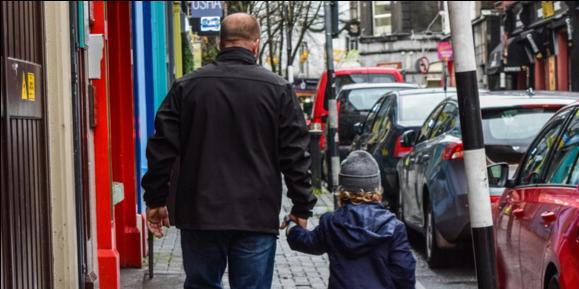
- posted: May 22, 2024
- Child Visitation, Child Support, Family Law
Child custody arrangements after a divorce can be strained or disrupted if a custodial parent relocates with the child over a long distance or out of state. In New York, simply packing up and leaving isn't allowed. There is a procedure that must be followed.
When a custodial parent wishes to move, they must notify their co-parent regarding their plans and give them the opportunity to object to the relocation. If the responding parent opposes the move, a hearing is held. Both parents are given the opportunity to testify. The custodial parent gives the reasons why they want to relocate while the noncustodial parent testifies as to how the move would affect their ability to maintain the visitation schedule.
The court, when faced with a relocation request, looks primarily at whether or not the move will be in the child's best interests. A key concern is minimizing the disruption to the vital relationship between the non-custodial parent and the child. This is especially true if the move would significantly alter or reduce established visitation time. The custodial parent bears the responsibility of demonstrating how they plan to maintain the bond between the non-custodial parent and the child, despite the distance. This could involve proposing alternative visitation schedules with more phone calls, video conferencing or longer visits during school breaks.
Beyond the immediate impact on the parent-child relationship, the court takes a broader look at how the move will affect the child's overall well-being. The custodial parent will need to provide evidence of the necessity and benefits of the relocation. This can encompass work-related opportunities that will significantly improve the family's financial standing or access to better schools that would enhance the child's educational prospects.
Additionally, the court considers the child's existing family network beyond the non-custodial parent. A move that puts the child in closer contact with grandparents, aunts, uncles, or cousins, creating a larger support system, could be viewed favorably. However, if the move isolates the child from established family relationships, the custodial parent needs to demonstrate that the benefits of the move outweigh these potential drawbacks.
Determining the best interests of a child in relocation cases, especially when long-distance moves are involved, can be a delicate and intricate process. An experienced child custody lawyer familiar with the nuances of New York's relocation laws can effectively present your case and significantly improve your chances of achieving an outcome that prioritizes the well-being of you and your child.
Bombardo Law Office, P.C. in Syracuse handles Family Court child custody cases for Central New York residents, including relocation matters. Whether you’re looking to initiate a proceeding or are opposing a filing, please call 315-800-4002 or contact me online.

- posted: May 22, 2024
- Child Visitation, Child Support, Family Law
Child custody arrangements after a divorce can be strained or disrupted if a custodial parent relocates with the child over a long distance or out of state. In New York, simply packing up and leaving isn't allowed. There is a procedure that must be followed.
When a custodial parent wishes to move, they must notify their co-parent regarding their plans and give them the opportunity to object to the relocation. If the responding parent opposes the move, a hearing is held. Both parents are given the opportunity to testify. The custodial parent gives the reasons why they want to relocate while the noncustodial parent testifies as to how the move would affect their ability to maintain the visitation schedule.
The court, when faced with a relocation request, looks primarily at whether or not the move will be in the child's best interests. A key concern is minimizing the disruption to the vital relationship between the non-custodial parent and the child. This is especially true if the move would significantly alter or reduce established visitation time. The custodial parent bears the responsibility of demonstrating how they plan to maintain the bond between the non-custodial parent and the child, despite the distance. This could involve proposing alternative visitation schedules with more phone calls, video conferencing or longer visits during school breaks.
Beyond the immediate impact on the parent-child relationship, the court takes a broader look at how the move will affect the child's overall well-being. The custodial parent will need to provide evidence of the necessity and benefits of the relocation. This can encompass work-related opportunities that will significantly improve the family's financial standing or access to better schools that would enhance the child's educational prospects.
Additionally, the court considers the child's existing family network beyond the non-custodial parent. A move that puts the child in closer contact with grandparents, aunts, uncles, or cousins, creating a larger support system, could be viewed favorably. However, if the move isolates the child from established family relationships, the custodial parent needs to demonstrate that the benefits of the move outweigh these potential drawbacks.
Determining the best interests of a child in relocation cases, especially when long-distance moves are involved, can be a delicate and intricate process. An experienced child custody lawyer familiar with the nuances of New York's relocation laws can effectively present your case and significantly improve your chances of achieving an outcome that prioritizes the well-being of you and your child.
Bombardo Law Office, P.C. in Syracuse handles Family Court child custody cases for Central New York residents, including relocation matters. Whether you’re looking to initiate a proceeding or are opposing a filing, please call 315-800-4002 or contact me online.
- Uncategorized (3)
- Restraining Order (1)
- Paternity (2)
- Child Visitation (11)
- Division Of Assets And Debts (3)
- Child Abuse (1)
- Divorce (21)
- Child Support (6)
- Family Law (6)
Contact Us
Please fill out the form below. I follow up with my clients quickly and never have to be chased!
Map & Directions
Bombardo Law Office, P.C.
530 Oak Street, Suite 102
Syracuse, New York 13203



